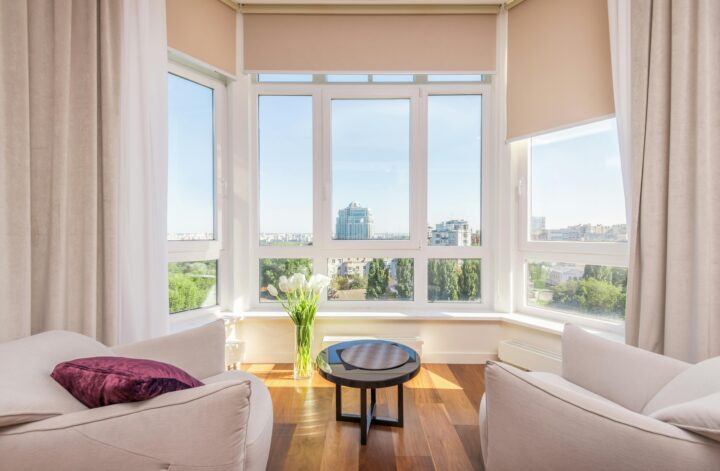In today’s fast-paced world, where we’re constantly juggling multiple responsibilities and striving to meet deadlines, it’s easy to feel overwhelmed. We’re often racing through life, ticking off tasks from an ever-growing to-do list, and checking notifications without a second thought. In the midst of this hustle, we tend to forget one crucial thing: the importance of slowing down.
Enter the concept of slow living — a movement that advocates for a more intentional, mindful way of living. It’s not about doing less or slowing down for the sake of it; it’s about prioritizing quality over quantity, focusing on what truly matters, and cultivating a deeper connection with ourselves, others, and the world around us.
The art of slow living is an antidote to the stress and burnout that come with modern life. It’s about finding balance, rediscovering joy in simple moments, and savoring the present. In this blog post, we will explore how to embrace slow living in a way that feels authentic and sustainable, and how adopting a mindful lifestyle can enrich your life in unexpected ways.
What Is Slow Living?
At its core, slow living is a lifestyle philosophy that encourages people to take a step back from the fast-paced demands of modern society and live more deliberately. This approach goes beyond simply “slowing down” in terms of pace; it’s about recalibrating your priorities and focusing on experiences that nourish your mind, body, and soul.
Slow living isn’t about being lazy or unproductive. Instead, it challenges us to reflect on the activities, habits, and consumption that we often mindlessly engage in, and encourages us to replace them with more intentional choices. Whether it’s simplifying your daily routines, embracing a more sustainable lifestyle, or making space for self-care, slow living is about aligning your actions with your values.
The Benefits of Slow Living
The benefits of adopting a slower, more mindful lifestyle are vast and transformative. Some of the key benefits include:
Reduced Stress: One of the most immediate effects of slowing down is the reduction of stress. By simplifying your schedule and focusing on what truly matters, you can let go of the constant pressure to perform, achieve, and keep up with others.
Improved Mental Health: Slow living promotes mindfulness and self-awareness, which can help alleviate anxiety and depression. Taking time to slow down and reflect can provide clarity and reduce mental clutter.
Enhanced Creativity: When we slow down, we give ourselves the mental space to reflect, daydream, and brainstorm. This can unlock creativity and innovative thinking that’s often stifled in a rushed environment.
Stronger Relationships: A key component of slow living is being present with others. By intentionally spending quality time with loved ones and focusing on meaningful interactions, you can foster deeper, more fulfilling relationships.
Greater Sense of Purpose: Slow living encourages intentionality and mindfulness, which can help you identify what truly matters in life. This heightened sense of purpose can lead to a greater sense of satisfaction and fulfillment.
How to Embrace Slow Living
Adopting a slow living lifestyle is not an all-or-nothing endeavor; it’s about making small changes that gradually lead to a more mindful, deliberate way of living. Here are some practical steps to help you get started:
1. Simplify Your Schedule
One of the first steps in embracing slow living is to simplify your daily routine. Many of us feel overwhelmed by the sheer number of activities we try to fit into a day. Between work commitments, social obligations, and personal projects, our calendars can quickly become crowded.
To reclaim your time and energy, begin by evaluating your schedule and identifying areas where you can cut back. Do you have commitments that no longer serve you? Are there activities you’re participating in out of obligation rather than genuine enjoyment? Learn to say no when necessary, and prioritize activities that bring you joy and fulfillment.
By allowing yourself more space in your calendar, you create room for relaxation, creativity, and spontaneous moments that make life more enjoyable.
2. Practice Mindful Living
Mindfulness is at the heart of slow living. It involves being fully present in the moment, without judgment or distraction. Practicing mindfulness can help you slow down and appreciate the simple pleasures of life, such as enjoying a hot cup of coffee, listening to the rustling of leaves, or having an uninterrupted conversation with a friend.
You can incorporate mindfulness into your everyday routine by paying closer attention to your senses and experiences. Instead of rushing through meals, take time to savor each bite. When walking, notice the sights, sounds, and smells around you. Use all of your senses to engage with the world in a more meaningful way.
3. Embrace Minimalism
A key aspect of slow living is reducing physical and mental clutter. Minimalism is a philosophy that encourages owning fewer possessions and focusing on quality over quantity. When we have too many things, whether it’s clothing, gadgets, or unnecessary paperwork, it becomes harder to focus on what truly matters.
Start by decluttering your living space. Donate or sell items you no longer use or need. As you pare down your possessions, you’ll create a more peaceful and intentional environment. Minimalism also extends to your digital life. Unsubscribe from excessive emails, limit your social media use, and declutter your devices. The less distraction you have, the more present you can be in your daily life.
4. Prioritize Self-Care
Self-care is an essential part of slow living. In the rush of everyday life, it’s easy to neglect our physical, emotional, and mental well-being. Slow living encourages you to prioritize rest and self-nurturing.
This can take many forms: setting aside time for a long bath, practicing yoga or meditation, getting enough sleep, journaling, or simply taking a walk in nature. It’s important to listen to your body and give it the time and space it needs to recharge. When we take care of ourselves, we are better equipped to handle life’s challenges and enjoy the moments that truly matter.
5. Slow Down in Your Relationships
In our busy lives, it’s easy to let relationships slip into the background. Slow living invites us to slow down and focus on deepening our connections with others. This means being fully present during conversations, spending quality time together, and showing genuine interest in each other’s lives.
Consider setting aside time for intimate, undistracted moments with loved ones. Whether it’s a cozy evening at home, a weekend getaway, or simply sitting together without phones or screens, these moments can foster a deeper sense of connection and fulfillment.
6. Reconnect with Nature
Nature offers a powerful antidote to the stress of modern life. Spending time outdoors can help ground you, reduce anxiety, and give you a renewed sense of peace. Slow living encourages us to reconnect with the natural world and enjoy its simple beauty.
You don’t have to spend hours hiking in the mountains or taking exotic vacations to experience the benefits of nature. Take short walks in your local park, sit outside to enjoy the sunshine, or plant a small garden. Allow yourself to be fully immersed in the present moment and observe the wonders of nature.
7. Cultivate Gratitude
Gratitude is a powerful practice that helps us appreciate the richness of our lives. When we slow down and reflect on the things we’re thankful for, we shift our focus from what’s lacking to what’s abundant.
To cultivate gratitude, consider starting a daily gratitude practice. Write down three things you’re grateful for each day, no matter how big or small. This simple practice can help you shift your mindset, bringing more positivity and contentment into your life.
Living Slowly, Not Stopping
It’s important to understand that slow living isn’t about stopping or rejecting all modern conveniences. It’s not about abandoning productivity or completely disconnecting from the world. Instead, it’s about living intentionally and cultivating mindfulness in every aspect of your life. It’s about finding a pace that aligns with your values and allows you to truly experience life, rather than rushing through it.
Embracing the art of slow living may require patience and practice, but the rewards are well worth it. As you slow down, you’ll find greater peace, more meaningful relationships, and a deeper appreciation for the world around you. By living more mindfully, you’ll begin to rediscover the joy and beauty in the simple things — and realize that the best moments in life are often the ones we take time to savor.




